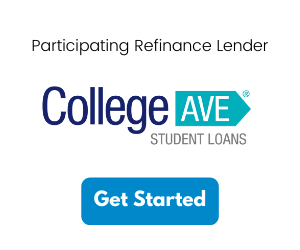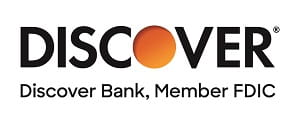Here is the most important financial question you’ll be asked on the FAFSA: What is your income? (And: What is your parents’ income? What is your spouse’s income?) This article highlights how income affects your eligibility for financial aid — and how to potentially lower the impact.
The Free Application for Federal Student Aid (FAFSA®) (and most other financial aid formulas) is heavily weighted toward income:
- Your income
- Your parents’ income (if you’re a dependent student)
- Your spouse’s income (if you’re married)
Income has a much greater impact on eligibility for need-based financial aid than assets (like the money you have in cash, checking, savings, or investments).
It’s important to note, the FAFSA is meant to help families with financial need qualify for need-based financial aid. While there are non-need-based financial aid options available, it may be tempting to make changes to your financial situation to try to qualify for need-based financial aid. While you could potentially qualify for some additional financial aid if you make changes to your financial situation, you don’t want to make changes that could negatively impact you for years to come. In other words, look at the long-term impact of changes to your financial situation.
How Does Income Affect Eligibility for Need-Based Financial Aid?
Income affects financial aid eligibility in two main ways:
- Part of the amount you are expected to contribute to pay for college, your EFC (expected family contribution), is simply based on a percentage of total discretionary income. A higher income means a higher EFC, meaning you contribute more money.
- There are simplified versions of the financial aid formulas that apply when parent income falls below certain thresholds.
The Income Protection Allowance: Why It Matters
Before we talk about how your income can hurt you in financial aid formulas, let’s talk about something that can help you: the income protection allowance. Basically, it’s an amount of income that doesn’t get counted when figuring out your financial aid. It’s your survival money, and it’s protected.
If you are a dependent student, the student income protection allowance for – AY 2024 - 2025 $6,970 and for AY 2025-2026 is $7,040 — meaning there is nothing counted toward your contribution if you have $7,040 or less in yearly taxable and untaxable income.
The parents of dependent students the income protection allowance will vary depending on how many people are in your household and how many of them are in college. For a family of four with one student in college, the income protection allowance for AY 2022-2023 will be $30,190. Income Protection Allowance for parents of dependent students for the 2023-24 school year, for a family of four with one student in college is $32,610.00. Income above those income protection allowances is considered your “discretionary” income — and that’s what counts toward your contribution. The student contribution from income on the FAFSA is calculated as a flat 50 percent of discretionary income. The parent contribution from income is calculated on a sliding scale, from 22 percent to 47 percent of discretionary income.
So, generally speaking, if you’re a dependent student, every $10,000 increase in your parent’s income (above the income protection allowance) will cause about a $3,000 increase of your EFC and every $10,000 increase in your income will cause up to a $5,000 increase of your EFC. The higher your EFC, the less need-based aid you’ll be eligible for.
Income Thresholds
There are two income thresholds built into the federal financial aid formula. Reducing income below these dollar amounts can have a big impact on eligibility for need-based student aid.
Auto-Zero EFC
- If you’re a dependent student and your parents’ income is less than or equal to the Auto-Zero EFC threshold ($29,000 for the 2023-2024 FAFSA), and certain other criteria are satisfied, then your EFC (expected family contribution) is automatically set to zero.
- A student with a zero EFC will qualify for a full Federal Pell Grant ($7,395 for the 2024 - 2025 academic year unless the Pell Grant maximum is adjusted by the Federal Government).
Simplified Needs Test for a dependent undergraduate student
- If your parents’ 2021 adjusted gross income (AGI) is less than $50,000, and you meet certain criteria, your assets and your parents’ assets will be ignored on the FAFSA.
In both cases, your family must also meet certain additional criteria:
- Your parent(s) filed an IRS Form 1040 but did not file a Schedule 1,or a tax form from a Trust Territory, or were not required to file any income tax return.
- Your parent is a dislocated worker; or
- Someone in your household must have qualified for certain means-tested federal benefit programs during the last two calendar years:
- Medicaid
- Supplemental Security Income (SSI)
- Free and Reduced Price School Lunch
- Temporary Assistance for Needy Families (TANF)
- Supplemental Nutritional Assistance Program (SNAP)
- Special Supplemental Nutrition Program for Women, Infants, and Children (WIC)
Strategies for Increasing Aid by Reducing Income
It’s not always possible to reduce your income (and giving up your job isn’t really a good solution). But, there are some choices you (or your parents) may be able to make to reduce income — at least during your college years.
The 2023-2024 FAFSA will ask you about income from your 2021 tax return. While this makes it easier to complete your FAFSA, you need to understand that changes made to your income may not have immediate effects on your FAFSA but could impact your (or your child’s) FAFSA in two years. If you made these changes in the past, you can’t undo them, you will need to report the information as requested.
Good strategy: Avoid artificial increases in income
- Capital gains distributions
- Retirement plan distributions (including a tax-fee return of contributions from a Roth IRA)
- Exercising stock options
- Bonuses
- Gifts
- Distributions from a qualified education benefit (529 college savings plan, prepaid tuition plan, or Coverdell education savings account) that isn’t parent-owned
Potential workarounds:
- Adjust the timing of the income so it isn’t received during the current or prior tax year.
- Offset capital gains with capital losses and business income with losses.
- If you are the beneficiary of a qualified education benefit, and your parent isn’t the owner, consider switching ownership to your parent. Then it counts as an asset instead of income. (Or, wait until after financial aid applications are filed for your senior year in college to take a distribution.)
- If your (or your parents’) income has changed or there was some special circumstance (like a conversion of a traditional IRA into a Roth IRA, inheritance, or life insurance proceeds, or some other one-time financial event), contact your college’s financial aid administrator for a possible adjustment.
- Reduce adjusted gross income through exclusions from income that are not reversed by the financial aid formulas, such as the student loan interest deduction, tuition and fees deduction, employer-provided health insurance, health savings accounts, and flexible spending arrangements (cafeteria plans). There are also other exclusions from income, such as above-the-line deductions for moving expenses, educator expenses, alimony paid, the penalty on early withdrawal of savings, and the domestic production activities deduction.
Bad strategy:
- Shifting income from adjusted gross income to untaxed income (For example, increasing contributions to qualified retirement plans (like a 401(k) or IRA) may decrease AGI, but the contributions will be added back in to the total income, counted as untaxed income).
Tips on Using a Tax Preparer
If you use a professional tax preparer to file federal income tax returns, make sure the tax preparer is aware of the potential impact of tax minimization efforts on eligibility for need-based financial aid — especially if you are close to either of the income thresholds.
Sometimes, choices that reduce your tax liability have a much greater impact on financial aid eligibility.
Recommendations
- File the FAFSA every year to maintain eligibility for student aid.
- Understand how your income and your parents’ income can affect your eligibility.
- Transfer any qualified education accounts to your parents’ name.
The information which is being provided is for general informational and educational purposes and is not, nor intended to be, legal, financial or tax advice. The publisher is not authorized to practice in front of the IRS and is not subject to IRS Circular 230. This information is general in nature and may not apply to the specific circumstances of individual readers. No claims are made about the accuracy, timeliness or usefulness of the content contained on this web site or any site linked to this site. Users of this site should seek specific guidance directly from a qualified legal, financial or tax professional. Nothing contained on or provided through this site is intended to be or is to be used as a substitute for professional advice.












